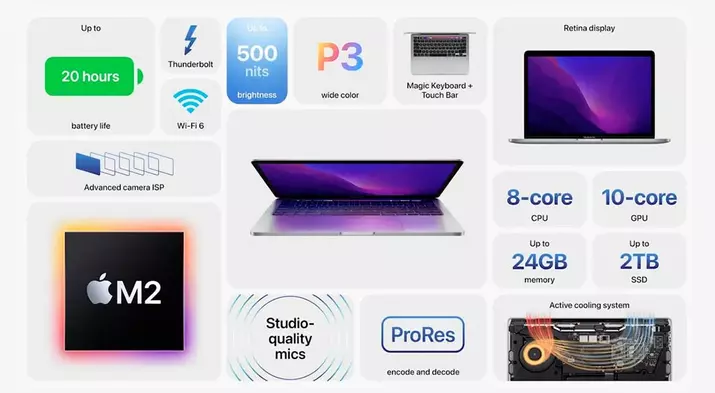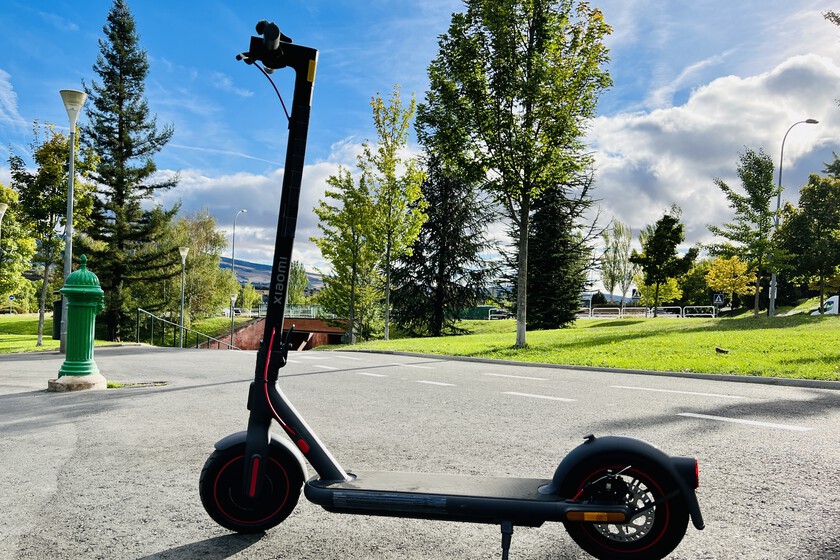Communication
The new MacBook Pro hides a nasty secret: Apple’s bad decision

-
/home/u233641744/domains/voonze.com/public_html/wp-content/plugins/mvp-social-buttons/mvp-social-buttons.php on line 120
- /home/u233641744/domains/voonze.com/public_html/wp-content/plugins/mvp-social-buttons/mvp-social-buttons.php on line 123
- /home/u233641744/domains/voonze.com/public_html/wp-content/plugins/mvp-social-buttons/mvp-social-buttons.php on line 126
- /home/u233641744/domains/voonze.com/public_html/wp-content/plugins/mvp-social-buttons/mvp-social-buttons.php on line 129
https://voonze.com/the-new-macbook-pro-hides-a-nasty-secret-apples-bad-decision/&t=
Warning: Undefined variable $post in /home/u233641744/domains/voonze.com/public_html/wp-content/plugins/mvp-social-buttons/mvp-social-buttons.php on line 120
Warning: Attempt to read property "ID" on null in /home/u233641744/domains/voonze.com/public_html/wp-content/plugins/mvp-social-buttons/mvp-social-buttons.php on line 120
The new MacBook Pro hides a nasty secret: Apple’s bad decision', 'facebookShare', 'width=626,height=436'); return false;" title="Share on Facebook">
The new MacBook Pro hides a nasty secret: Apple’s bad decision &url=
Warning: Undefined variable $post in /home/u233641744/domains/voonze.com/public_html/wp-content/plugins/mvp-social-buttons/mvp-social-buttons.php on line 123
Warning: Attempt to read property "ID" on null in /home/u233641744/domains/voonze.com/public_html/wp-content/plugins/mvp-social-buttons/mvp-social-buttons.php on line 123
https://voonze.com/the-new-macbook-pro-hides-a-nasty-secret-apples-bad-decision/', 'twitterShare', 'width=626,height=436'); return false;" title="Tweet This Post">
https://voonze.com/the-new-macbook-pro-hides-a-nasty-secret-apples-bad-decision/&media=
Warning: Undefined variable $post in /home/u233641744/domains/voonze.com/public_html/wp-content/plugins/mvp-social-buttons/mvp-social-buttons.php on line 126
Warning: Attempt to read property "ID" on null in /home/u233641744/domains/voonze.com/public_html/wp-content/plugins/mvp-social-buttons/mvp-social-buttons.php on line 126
https://voonze.com/wp-content/uploads/2022/06/problema-nuevo-macbook-pro.jpg&description=
Warning: Undefined variable $post in /home/u233641744/domains/voonze.com/public_html/wp-content/plugins/mvp-social-buttons/mvp-social-buttons.php on line 126
Warning: Attempt to read property "ID" on null in /home/u233641744/domains/voonze.com/public_html/wp-content/plugins/mvp-social-buttons/mvp-social-buttons.php on line 126
The new MacBook Pro hides a nasty secret: Apple’s bad decision', 'pinterestShare', 'width=750,height=350'); return false;" title="Pin This Post">
The new MacBook Pro hides a nasty secret: Apple’s bad decision&BODY=I found this article interesting and thought of sharing it with you. Check it out:
Warning: Undefined variable $post in /home/u233641744/domains/voonze.com/public_html/wp-content/plugins/mvp-social-buttons/mvp-social-buttons.php on line 129
Warning: Attempt to read property "ID" on null in /home/u233641744/domains/voonze.com/public_html/wp-content/plugins/mvp-social-buttons/mvp-social-buttons.php on line 129
https://voonze.com/the-new-macbook-pro-hides-a-nasty-secret-apples-bad-decision/">

When Apple introduced the new MacBook Pro with its new M2 chip, we were all blown away by the specs on paper. However, the first reviews are arriving and they have found its great Achilles’ Heel: the SSD and its speed.
Some tech youtubers have been able to test the new laptop model and have discovered the reason for specifically avoiding the base model: your SSD is very slow.
An SSD too slow for the MacBook Pro M2
Both Created Tech and Max Tech have tested the model with the smallest solid state drive (SSD) within the configurations that Apple offers. The 13-inch MacBook Pro M2 (price from 1,619 euros) with a 256 GB SSD, the smallest capacity available, shows test results in which the read speeds of the SSD are significantly slower than its predecessorthe 13-inch MacBook Pro based on the M1.
This difference is not even small. The MacBook Pro M2 has SSD read speeds that are 50 percent slowerwhile write speeds are reduced by 30 percent.
The second channel took the laptop apart and may have figured out why the SSD suffers from such poor performance. Apple is using a single 256GB NAND flash storage chip. That’s different from the M1 model that uses a pair of 128GB chips: two chips doing read/write functions are faster than a single chip doing the same thing.
In addition, it must be remembered that Mac has unified memory, which is used when the CPU is running. When the CPU runs out of unified memory, it moves unused items to a swap file on the SSD. The CPU will swap items between the unified memory and the SSD until it is no longer needed. If the SSD is slow, it takes longer for the CPU to swap, and that affects the overall performance of the Mac.
Bigger SSDs, Better Performance
For example, the results of the MacBook Pro with SSD of 1TB showed better read performance, while the write performance was the same. Apple is likely using two 512GB chips for the 1TB SSD, which would avoid the problem we discussed earlier by using larger capacity SSDs.

MacBook Pro with M2
There are a couple of reasons why Apple would switch to a single chip, but none of them make much sense. If it is a cost reduction measure, it would not be significant. It could be due to the global chip shortage, but this doesn’t seem to affect the SSD segment much. It is Apple may quietly switch to dual 128GB chips in future production runs of the new MacBook Pro.
-
/home/u233641744/domains/voonze.com/public_html/wp-content/plugins/mvp-social-buttons/mvp-social-buttons.php on line 120
- /home/u233641744/domains/voonze.com/public_html/wp-content/plugins/mvp-social-buttons/mvp-social-buttons.php on line 123
- /home/u233641744/domains/voonze.com/public_html/wp-content/plugins/mvp-social-buttons/mvp-social-buttons.php on line 126
- /home/u233641744/domains/voonze.com/public_html/wp-content/plugins/mvp-social-buttons/mvp-social-buttons.php on line 129
https://voonze.com/the-new-macbook-pro-hides-a-nasty-secret-apples-bad-decision/&t=
Warning: Undefined variable $post in /home/u233641744/domains/voonze.com/public_html/wp-content/plugins/mvp-social-buttons/mvp-social-buttons.php on line 120
Warning: Attempt to read property "ID" on null in /home/u233641744/domains/voonze.com/public_html/wp-content/plugins/mvp-social-buttons/mvp-social-buttons.php on line 120
The new MacBook Pro hides a nasty secret: Apple’s bad decision', 'facebookShare', 'width=626,height=436'); return false;" title="Share on Facebook">
The new MacBook Pro hides a nasty secret: Apple’s bad decision &url=
Warning: Undefined variable $post in /home/u233641744/domains/voonze.com/public_html/wp-content/plugins/mvp-social-buttons/mvp-social-buttons.php on line 123
Warning: Attempt to read property "ID" on null in /home/u233641744/domains/voonze.com/public_html/wp-content/plugins/mvp-social-buttons/mvp-social-buttons.php on line 123
https://voonze.com/the-new-macbook-pro-hides-a-nasty-secret-apples-bad-decision/', 'twitterShare', 'width=626,height=436'); return false;" title="Tweet This Post">
https://voonze.com/the-new-macbook-pro-hides-a-nasty-secret-apples-bad-decision/&media=
Warning: Undefined variable $post in /home/u233641744/domains/voonze.com/public_html/wp-content/plugins/mvp-social-buttons/mvp-social-buttons.php on line 126
Warning: Attempt to read property "ID" on null in /home/u233641744/domains/voonze.com/public_html/wp-content/plugins/mvp-social-buttons/mvp-social-buttons.php on line 126
https://voonze.com/wp-content/uploads/2022/06/problema-nuevo-macbook-pro.jpg&description=
Warning: Undefined variable $post in /home/u233641744/domains/voonze.com/public_html/wp-content/plugins/mvp-social-buttons/mvp-social-buttons.php on line 126
Warning: Attempt to read property "ID" on null in /home/u233641744/domains/voonze.com/public_html/wp-content/plugins/mvp-social-buttons/mvp-social-buttons.php on line 126
The new MacBook Pro hides a nasty secret: Apple’s bad decision', 'pinterestShare', 'width=750,height=350'); return false;" title="Pin This Post">
The new MacBook Pro hides a nasty secret: Apple’s bad decision&BODY=I found this article interesting and thought of sharing it with you. Check it out:
Warning: Undefined variable $post in /home/u233641744/domains/voonze.com/public_html/wp-content/plugins/mvp-social-buttons/mvp-social-buttons.php on line 129
Warning: Attempt to read property "ID" on null in /home/u233641744/domains/voonze.com/public_html/wp-content/plugins/mvp-social-buttons/mvp-social-buttons.php on line 129
https://voonze.com/the-new-macbook-pro-hides-a-nasty-secret-apples-bad-decision/">






